I am going to assume that you are a normal person and that the phrase “failure of a diode” makes as much sense as the IRS Form 1040.
So if you’re wondering, “Why is my RV converter not charging my battery?”, I’m going to skip the answers best left to your RV technician. Instead, let’s put our two heads together and fix the problem, no multimeter required!
1. Do You Trust the Battery?
Are you blaming the converter without just cause? How do you know the battery didn’t bite the dust? You can either measure the open-circuit voltage across the terminals, or if that phrase just struck fear in your heart, take your battery to the nearest auto parts store. They’ll check it for free.
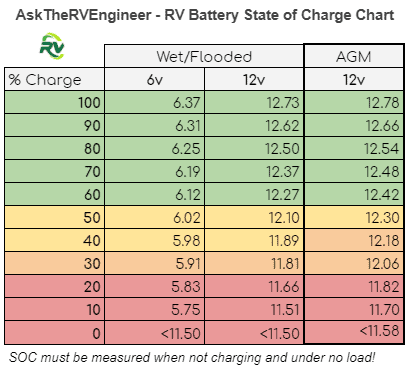
And are you sure the converter even had a chance to charge the battery? A converter will deliver 12V power to the RV first, and the battery second. If you were hogging up the converter’s output with your 12V TV, laptop, phone, water pump, fan, lights, etc., the poor battery never had a chance!
2. Did You Read Your Owner’s Manual?
Some engineer exhausted a lot of hours organizing the Troubleshooting Table in your converter Owner’s Manual. There’s some good information in there!
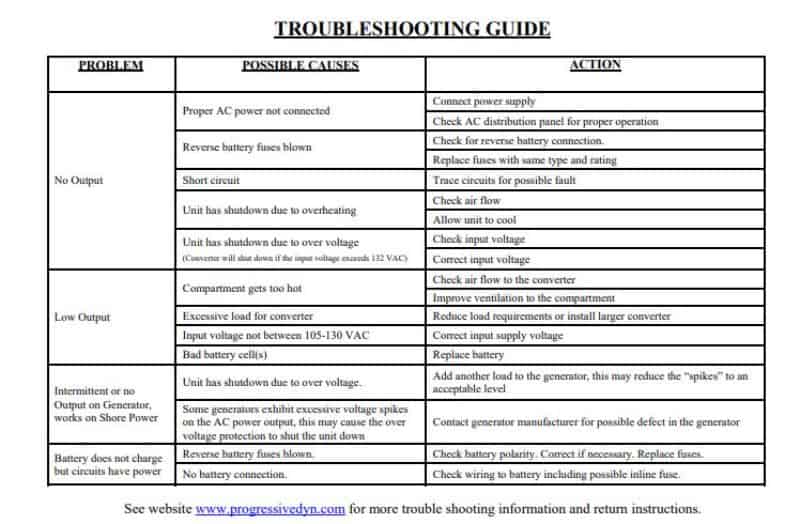
- Reverse battery fuse blown (common if you recently replaced the battery)
- Proper AC not connected (check the AC power supply using your EMS surge protector)
- Unit shut down due to overheating (reduce the load and allow the unit to cool)
And at the risk of insulting your intelligence … are you sure the converter is set to the correct charging mode? Many modern 3-stage converters have different charging algorithms for lithium batteries vs lead-acid batteries. If you flipped the wrong switch, the battery may not be properly charging!
3. Double-Check Shore Power
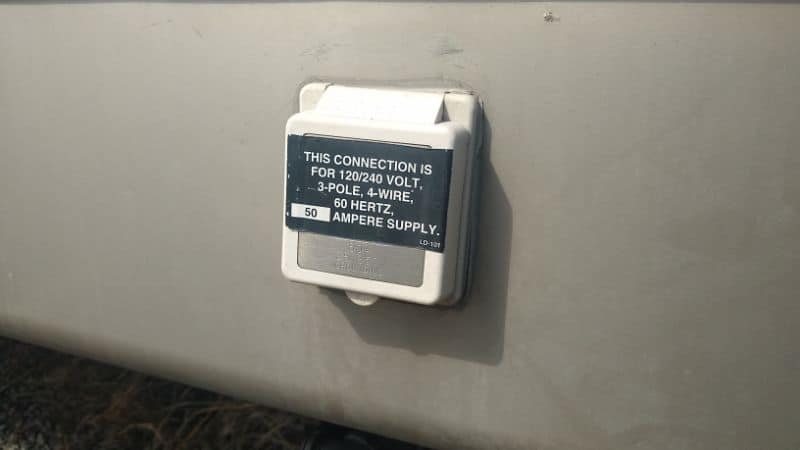
A converter will not work if the incoming shore power is of unacceptable quality. This usually means low voltage (less than 104 volts) or high voltage (above 132 volts). If you’re staying at a crowded campground, low voltage is fairly common at older campgrounds. That’s why I recommend – nay, I insist! – you use an EMS surge protector to check the quality of the 110V shore power connection.
4. Check the Battery Cutoff Switch
Most RVs have a safety cutoff switch between the house batteries and the converter. If you just awoke the RV from winter hibernation, did you remember to turn the switch to “ON”?
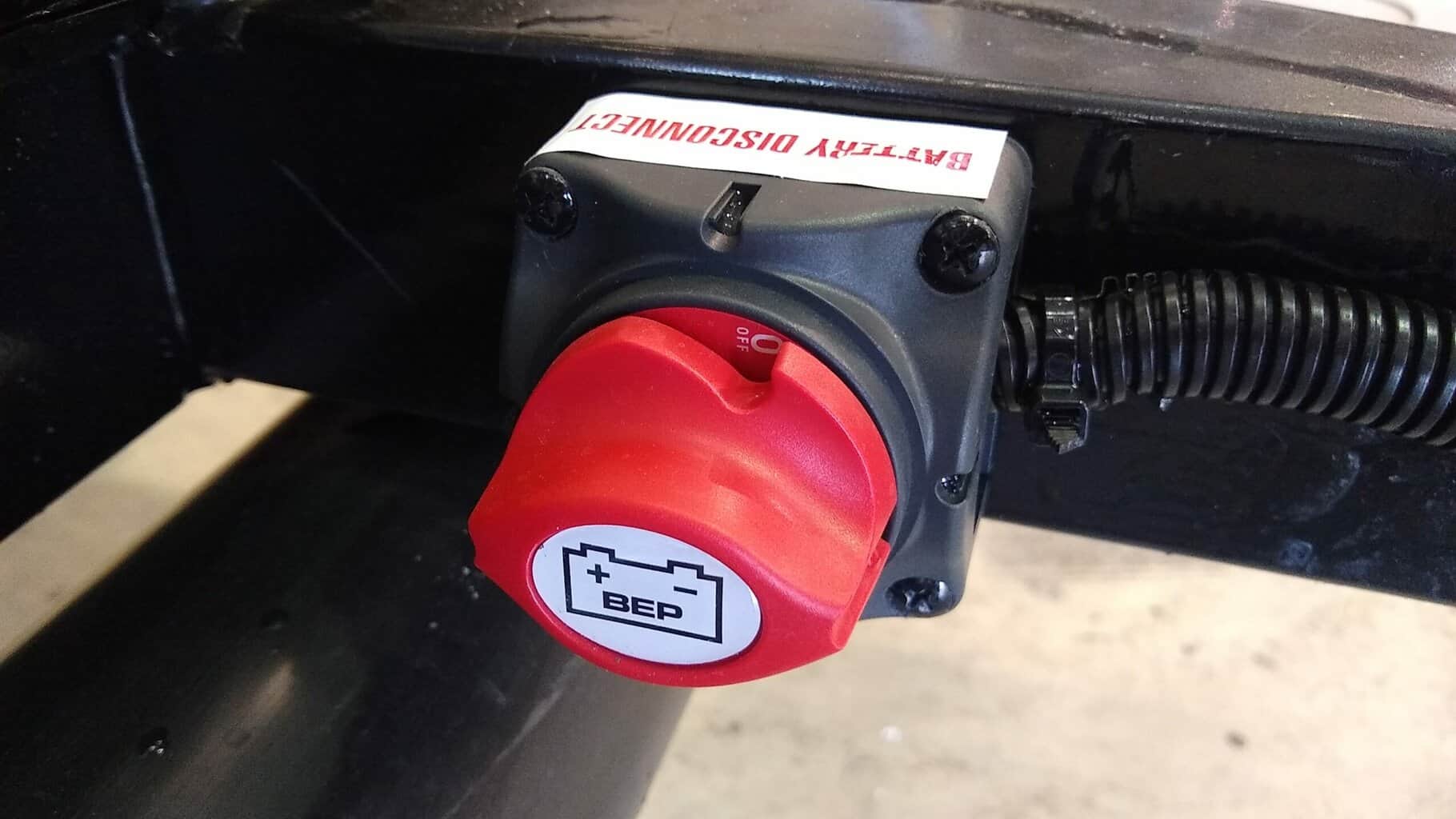
5. Inspect for Loose Connections & Burnt Fuses
An engineer saying “inspect for loose connections” is like an IT guru saying, “reboot and restart.” It’s trite advice – but it often works!!
It can feel like a wild goose chase, though. You’ll need to change wires at the following locations:
- Converter input and output
- Circuit breaker to converter
- Converter to batteries
- Batteries themselves
- Any inline fuses or circuit breakers (ask your manufacturer for a line drawing)
- Any and all grounds (you’d be amazed how often an electrical problem is just a bad ground connection!)
Wiggling wires can help track down a loose connection. And keep a close eye out for any bare or frayed wires. Just a single strand touching ground can be enough to short the circuit!
6. Clean Battery Terminals and Electrical Connections
Corrosion kills voltage. Your battery can’t charge below a minimum voltage. Even if the converter is doing its job, corrosion can “drain” the voltage past the minimum, and the battery won’t fully charge.
- The most likely culprit is the battery terminals. Remove the lugs and clean everything with battery terminal cleaner and a wire brush. Or if you’re in a hurry, use baking soda and a toothbrush.
- The next places to look are ground connections to the frame. These can often corrode or vibrate loose. Most lugs can be re-tightened with a flathead screwdriver.
7. Reset GFI Outlets
In some instances, a tripped GFI outlet or circuit breaker can impede charging to the battery. Reset all your GFI circuit breakers before you go tearing things apart!
8. Check the Converter Cooling Fan
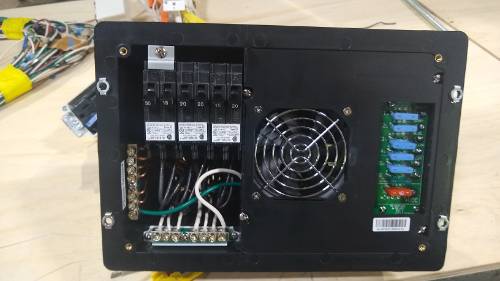
Converters produce heat when they operate. Your converter has a built-in cooling fan and thermal sensor that will activate the fan when a certain temperature is reached. If the fan motor has died, the thermal sensor is defective, or fresh airflow to the converter is blocked, the unit could have overheated. This may not be fixable if the unit was damaged (see #9).
You can see other potential issues in my article, The Ultimate FAQ Guide to the RV Converter
9. The Converter Has Given Up the Ghost
It’s quite possible the problem is within the mysterious innards of the converter itself.
The problem could be many things: faulty diodes, short circuits, corrosion, overheating. Doesn’t matter. Once the guts have gone bad, you need to either replace the unit entirely or take it to an RV repair shop.
Personally, I think life is too short to go rooting around in PCBs and breadboards.
10. Your Stupid Advice Didn’t Work, Andy!
If you ran through my checklist and your converter still isn’t charging your battery … I’m sorry. You might find this article useful: Why Does My RV Battery Keep Dying? (Every Reason I Can Think Of)
Do Your Own Investigating
If you dare, you can don your Private Eye monocle and do your own research. Diagnosing electrical problems is just an invisible game of cat-and-mouse. Start with the power source and check voltage and current at every point along the electrical path. Sooner or later, you’ll find the problem. The problem is “later” could be much, much later!
Here’s what I’d add: Don’t make it too complicated! Why assume the worst? Don’t just assume the converter control board is busted or fried, or that the campground electrical system is outside of the required voltage range.
Most of the time – especially for new RVs! – the problem can be traced to a loose connection or broken circuit protection.
- Did you flip the circuit breaker?
- Did you check and/or replace the fuse[s]?
Next, check your battery. Get a voltmeter and measure the open-circuit voltage. If you’re seeing wonky numbers, especially numbers lower than 11.5 volts, that probably means you have a bad cell in your battery. And that can mess up a converter’s output power!
Battery looking good? Then check campground power.
You really ought to be using a surge protector at the campground power pedestal. An advanced surge protector should tell you what voltage is being supplied. Otherwise, get out your voltmeter again!
If the AC RMS voltage is less than 108 or above 128, you have a power problem. Get a new campsite. Voltage fluctuations can do major damage – even cause fires! – to your RV’s electrical innards.
But if the campground power is clean and healthy, start checking for loose connections!
- Tighten the screws on the ground and neutral bus bars.
- Double-check the chassis ground lug connection!
- Inspect the clamp or screw terminals on the circuit breakers!
You might also look for stray strands of wires poking out of the bus bars. These can contact other charged wires and cause short-circuiting.
Speaking of short-circuiting: If the Magic Smoke has escaped from your converter, then forget everything I just said.
That is, if your converter smells like burning rubber, then A) it’s definitely ruined and B) you might be in real danger. Safely disconnect from all power sources until a professional has identified the root cause!
Run New Wire
If you’re really desperate, you could try running your own wire from the converter to the battery and scrapping the old wire. That’s major plastic surgery, though. You’ll want to obtain an Installation Manual and know what you’re doing! And always follow rules for safety with electricity.
Contact the OE Manufacturer
Personally, I recommend you contact the manufacturer. Not, not your RV manufacturer – they might not be much help! I mean the converter manufacturer. Many of these companies – WFCO, Progressive Dynamics, PowerMax, etc. – have trained Sales Associates who will walk you through common causes. Let them noodle on the problem.
And remember that converters are normally covered by the OE warranty, not the RV manufacturer warranty, so just because your 1-year RV warranty expired doesn’t mean the 2-year converter warranty did!
BONUS: What’s the Cost of a New RV Converter?
Or … just try a new converter. A converter is not incredibly expensive. Most are $150-$250. If you have a converter/charger module integrated into your Power Center, you don’t need to replace the whole thing. The manufacturer will ship you (or your RV repair tech) a replacement circuit board and assembly for the converter only.
Leave a Reply